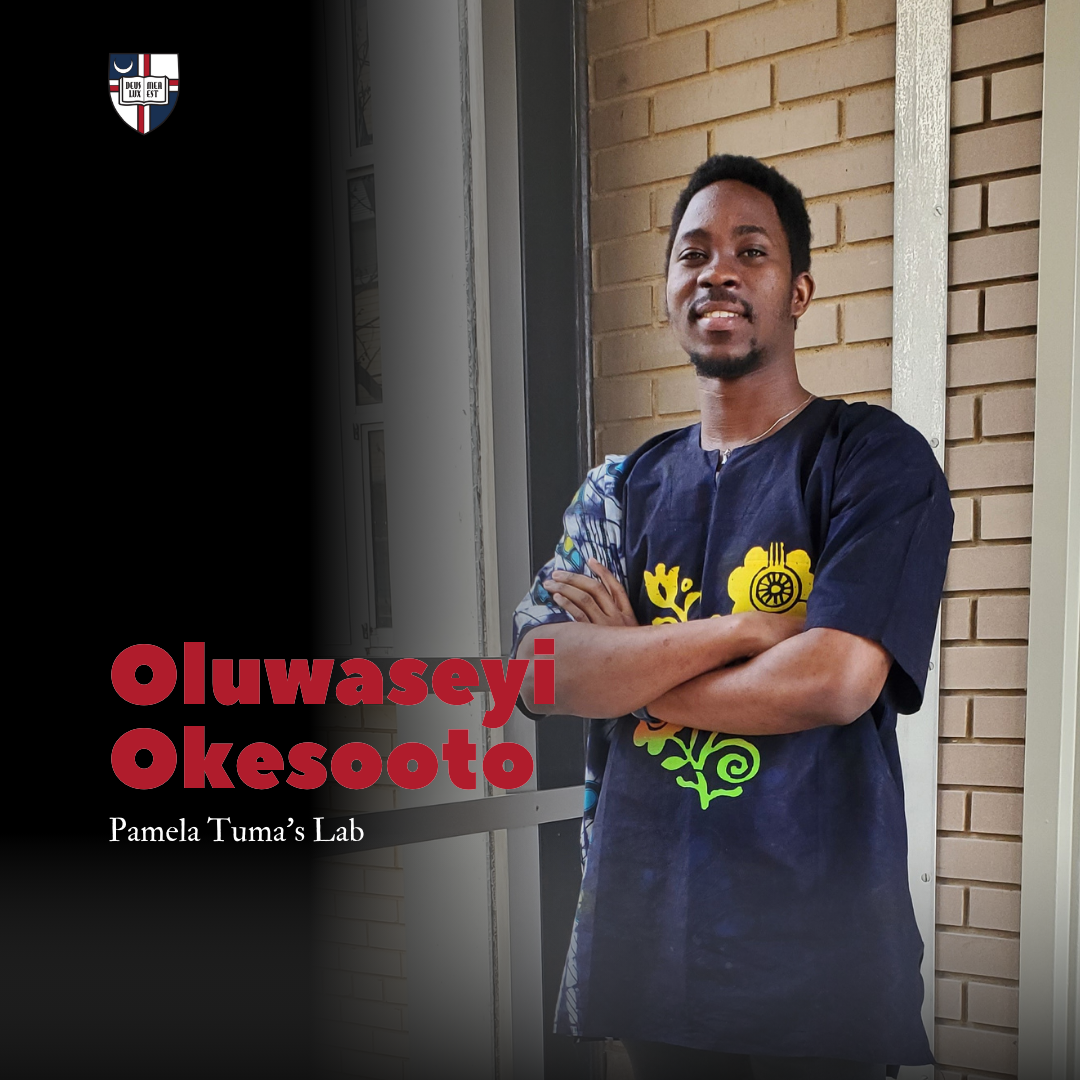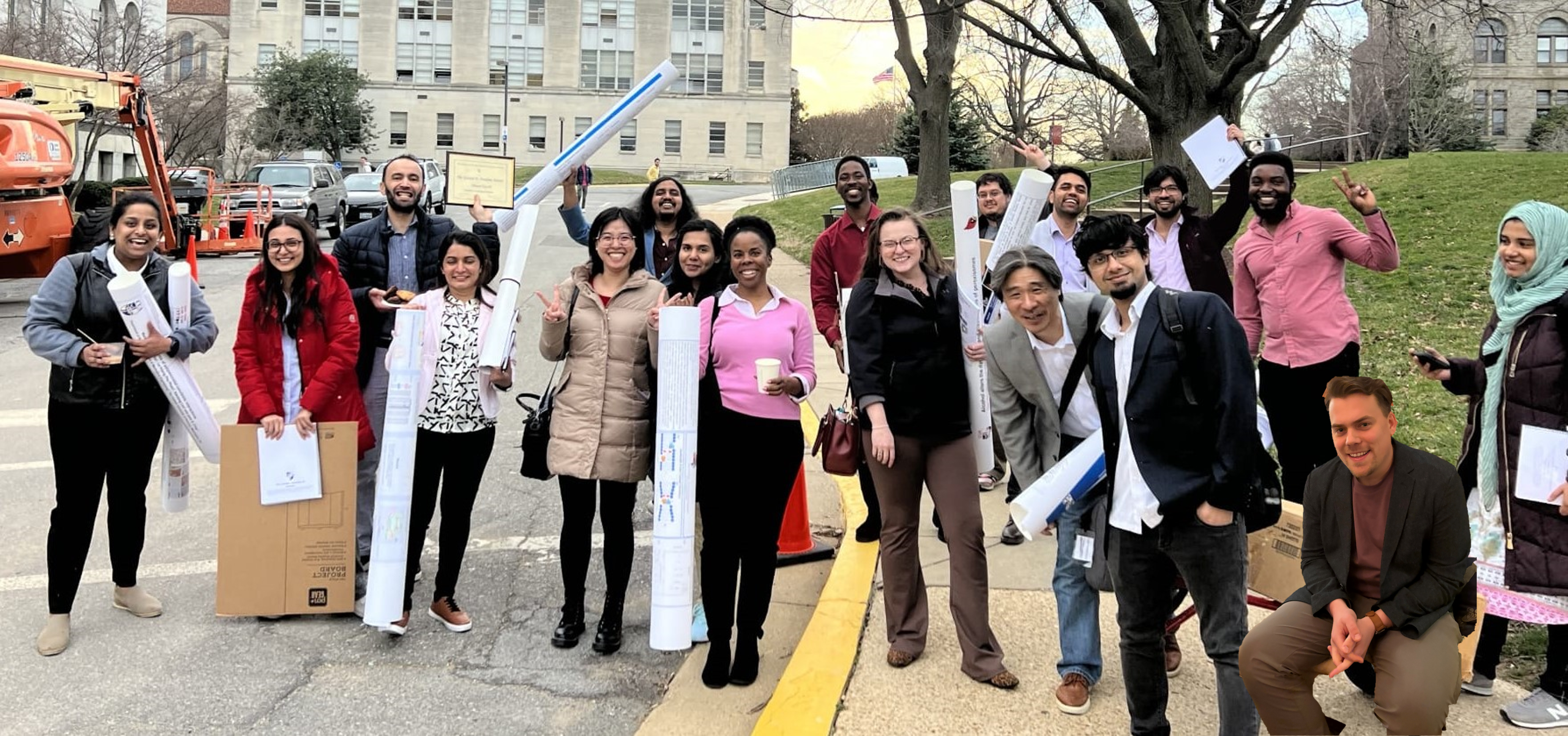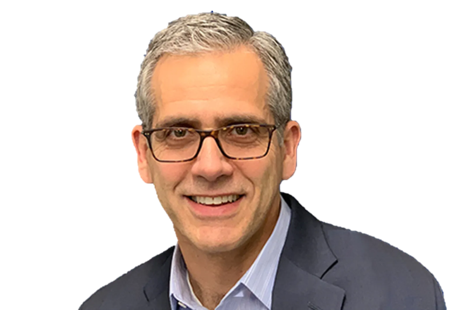The Biology Graduate Students' Research Symposium
The Department of Biology is thrilled to announce the 20th year of its Annual Graduate Student Symposium. This flagship event celebrates the innovative research of our graduate students and serves as a vital platform for professional networking and scientific exchange.
Join us to learn about the cutting-edge projects and discoveries happening within our department. This year's symposium will feature a series of student oral presentations, poster sessions, and dedicated networking opportunities designed to connect our students with our distinguished alumni.
A special highlight will be our one-on-one networking sessions, where graduate students will have the chance to meet with alumni to discuss a wide range of career paths, gain valuable insights, and build professional connections. Participants will receive feedback from a select panel of reviewers, and stand-out presenters will be invited to judge future symposiums or present at upcoming events.
Meet the Keynote Speaker
Dr. Robert Iannone, M.D., M.S.C.E.
We are excited to welcome back Dr. Robert Iannone, a distinguished alumnus and former biology undergraduate, as our keynote speaker for this very special 20th anniversary of our Graduate Student Symposium. It is a true pleasure to have one of our own return to inspire the next generation of scientists on this momentous occasion.
Dr. Iannone brings extensive experience in biopharmaceutical research and leadership. He recently served as Head of Research and Development and Chief Medical Officer at Immunomedics, Inc. Before that, he was Senior Vice President and Head of Immuno-Oncology at AstraZeneca for four years. He spent a decade at Merck in various management roles, including Executive Director of Oncology Clinical Development. He also held an academic position as an assistant professor at the University of Pennsylvania.
Dr. Iannone earned his Bachelor of Science degree in Biology, Summa Cum Laude, from The Catholic University of America, his Medical Degree with Alpha Omega Alpha honors from Yale University, an M.S.C.E. from University of Pennsylvania, and completed his clinical residency in Pediatrics and fellowship in Pediatric Hematology‐Oncology at Johns Hopkins University.
Dr. Iannone has also served on the Cancer Steering Committee of the Biomarkers Consortium/Foundation for the National Institutes of Health since 2011 and is currently on the executive committee of the Biomarkers Consortium.
He was the 2019 Alumni Achievement Awardee of the Catholic University of America.
Event Schedule
Date: Monday October 6, 2025
Venue: Heritage Hall, Father O'Conell Hall.
Time: 8:30 am - 4:00 pm
Tentative Order of Event
Breakfast - 8:30 am
Opening Remark - 9:30 am
Graduate Talk I - 9:35 am - 10:35 am
Break - 10:35 am - 10:40 am
Graduate Talk II - 10:40 am - 11:40 am
Biology Graduate Students Award - 11:40 am - 12 noon
Lunch and Networking Session - 12 noon - 1:15 pm
Keynote Session with Q & A - 1:15 pm - 2-45 pm
Poster Reception and Presentation - 2:45 pm - 3:45 pm
Closing Remark - 3:45 pm - 4:00 pm
Alumni Networking Session
Date: Monday October 6, 2025
Venue: Heritage Hall, Father O'Conell Hall.
Time: 12 noon - 1:15 PM
Alumni Profile
1. Stephany Meyers Small, PhD
Dr. Stephany Small is an analytical and results-focused Patent Agent and works with clients ranging from large pharmaceutical companies to individual inventors for obtaining and protecting intellectual property. Because of her in-house experience along with her extensive life science research background, Stephany provides her clients technical expertise and comprehensive strategy guidance. Proven abilities in communicating science to diverse audiences and collaborating with intellectual property licensees and external counsel. Excels in both independent and team environments.
You can read more about her using this link
2. James M. Cherry, PhD
Dr. Jim Cherry obtained his Ph.D. from the Catholic University of America in molecular biology with a concentration in bio-medical science. He earned an M.S. from Johns Hopkins University in molecular biology with a concentration in biotechnology. His bachelors degree is from Shepherd University with a major in biology and minor in chemistry. He is the associate Director of the Research Technologies, and the Chief, Research Technology Branch of the National Institute of Allergy and Infectious Diseases, NIH. He will be sharing his experience on Becoming Leaders in Government, Contract and Biotechnology.
You can read more about him using this link.
3. Mary Kearney, PhD
Dr. Kearney has the privilege of serving in several leadership roles in the NCI and in the NIH. In the NCI, she serves as Deputy Scientific Director in the Center for Cancer Research, as Deputy Program Director in the HIV Dynamics and Replication Program, and as Acting Branch Chief of the Basic Research Laboratory. In the NIH, she chaired the NIH Women Scientists Advisors and serve on the Steering Committee for the Working Group for Women in Biomedical Science. She takes her role as a public servant to heart by improving public health through the design and implementation new programs, developing innovative technologies to measure the efficacy of new interventions for HIV and cancer, conducting research on HIV persistence and outcomes of cellular therapy for the treatment of cancer, and publishing technologies and discoveries originating from my lab. As Head of the Translational Research Section in the HIV Dynamics and Replication Program, NCI, she oversees a team that investigates HIV genetic diversity, the sources of persistent and rebound viremia during antiretroviral therapy, and insertional mutagenesis resulting from lenti- and gamma-retroviral vectors. By quantifying and sequencing virus and transgene populations in cells and plasma and characterizing the transcriptional activity of HIV proviruses, transgenes, and host genes, my research advances our understanding of the HIV reservoir and secondary cancers in directions that will lead to new strategies towards curative interventions.
You can read more about him using this link.
4. Rachel Beyer, PhD
Dr. Beyer is the head of the NCI Surgery Branch Vector Production Facility (VPF) and in addition, heads the Quality Control Unit (QCU) for clinical products used within the Branch. In these roles, Dr. Beyer directs a GMP viral vector pipeline for individualized therapies including manufacturing and testing/release of clinical vectors and testing/release of gene therapy cell products. Dr. Beyer is also responsible for identification and development of novel strategies to improve gene delivery in support of Surgery Branch priorities. Dr. Beyer provides support IND applications/modification and facilitates CRADA partnerships with industry in a leadership role. The VPF and QCU team members provide expert technical support to ensure clinical priorities and timelines are met in a GMP compliant manner.
You can read more about him using this link.
5. Jennifer Groebner, PhD
Dr. Groebner is a staff scientist at the Viral Genomics Section & Systems Serology Core at Military HIV Research Program of the Walter Reed Army Institute of Research in collaboration with Henry M. Jackson Foundation for the Advancement of Military Medicine, Inc. (HJF). She works with a group of scientists with expertise in molecular biology, evolutionary biology, population genetics, structural bioinformatics, immunology, mathematical modeling and statistics in Dr. Morgane Rolland Lab. The Rolland Lab has pioneered sieve analyses methods, aiding understanding of the genetic consequences of vaccine-induced immune responses in breakthrough infections, thereby providing insights on potential mechanisms of vaccine protection or on risks for future vaccine resistance.
Connect with Dr. Groebner using this link.
6. Robert E. Farrell Jr., PhD
Dr. Farrell is a Professor of Biology at Penn State University where he also serves as the Director of Academic Affairs. He is recognized for his work in gene expression in both animal and plant model systems and for his expertise in RNA biology. He has authored six editions of the comprehensive laboratory guide RNA Methodologies and has been a faculty member at Penn State for thirty-five years where he has received awards for excellence in teaching. Dr. Farrell is also a member of the education committee of the RNA Society. He continues to consult within the biotech industry and is often called upon to serve as an expert witness. He will be sharing insights about biology careers in Academia and paths to success as an academic scientist.
Sign up to connect with this notable alumni for a networking session and engaging discussion over lunch using this link.
Important Information
Abstract Submission Guideline
Submission Deadline: Monday, September 8, 2025; 11:59 PM
Submission Link: Abstract Submission for Biology Graduate Students Research Symposium 2025
Graduate students selected for oral presentation will be notified by September 12, 2025.
Abstracts will be printed in a booklet and distributed by email and at the symposium.
Abstract tips to keep in mind:
Your abstract should answer these questions:
1. Why do we care about your project? Connect your topic of study (big picture) to a human interest (disease, process discovery, long-standing question, etc.)
2. What is the question you are asking in your specific project?
3. What approach(es) did you take to answer this question? Ex. In order to…. we
used…
4. What have you learned? We have found… Results
5. Why do your results matter? Connect back to the big picture.
Background and Significance 25-30%
Your Approach and Experiments 50%
Conclusion and Future 20-25%
Adapted from:
https://www.biology.pitt.edu/abstract
Oral Presentation
Congratulations to the graduate students selected to present their research at the upcoming Graduate Student Research Symposium! The quality of submissions was exceptional, and we're excited to showcase the innovative work happening across the biology department
- Courtney Tucker, Cherrelle Dacon, Bethany Scott, Silvia Bolland - Eliciting Antibody Responses to Conserved Coronavirus Epitopes
- Narbada Upreti, Vengella B. Rao - Mechanism of Assembly of Bacteriophage T4 DNA Packaging Machine
- Anup Baral, Ann Corsi - Modeling transcription of a Saethre-Chotzen Syndrome patient mutation in a TWIST homolog, HLH-8
- Jarin Taslem Mourosi, Ayobami Awe, Wei-Chun Tang, Venigella B. Rao - Unexpected Involvement of Noncoding RNA Bacteriophage T4 Portal Vertex Assembly
- Antara Syam, Ekaterina M Nestorovich, Tatiana K Rostovtseva, Sergey M Bezrukov, John S. Choy - Beyond Cell Receptors: How Cationic Amphilic Drugs Modify Lipid Membranes and Ion Channel Activity
- Lauren Bassaro, Marina Maglente, Dr. Pamela Tuma - Mutational analysis of rab17 and MAL2 in hepatocellular carcinoma tumor suppression
Important Details for Presenters
- Kindly submit your powerpoint presentation by 11:59 PM on Monday, September 29th, 2025 using this link.
- Presentation Time: Each oral presentation will be 15 minutes, followed by a 5-minutes Q&A session.
-
Date: Monday October 6, 2025
Venue: Heritage Hall, Father O'Conell Hall.
Time: 8:30 am - 4:00 pm

RSVP
To attend this symposium, kindly make a reservation here



